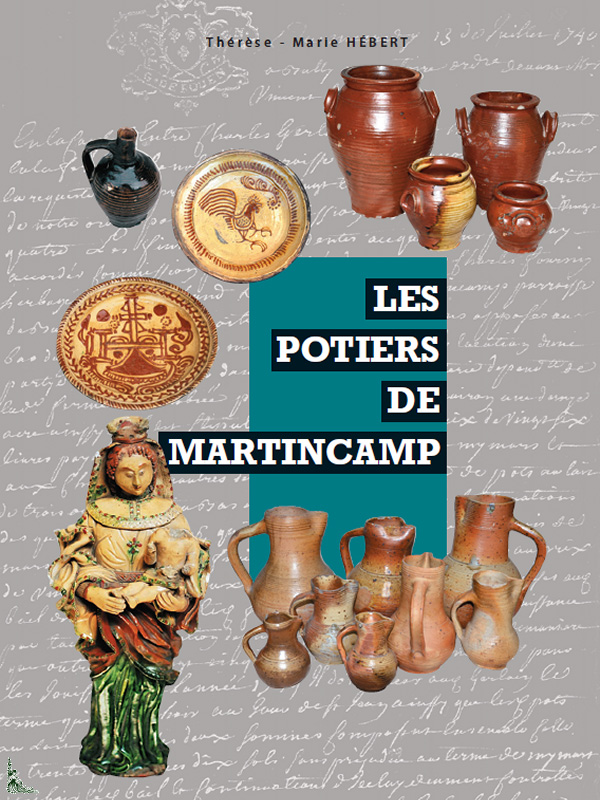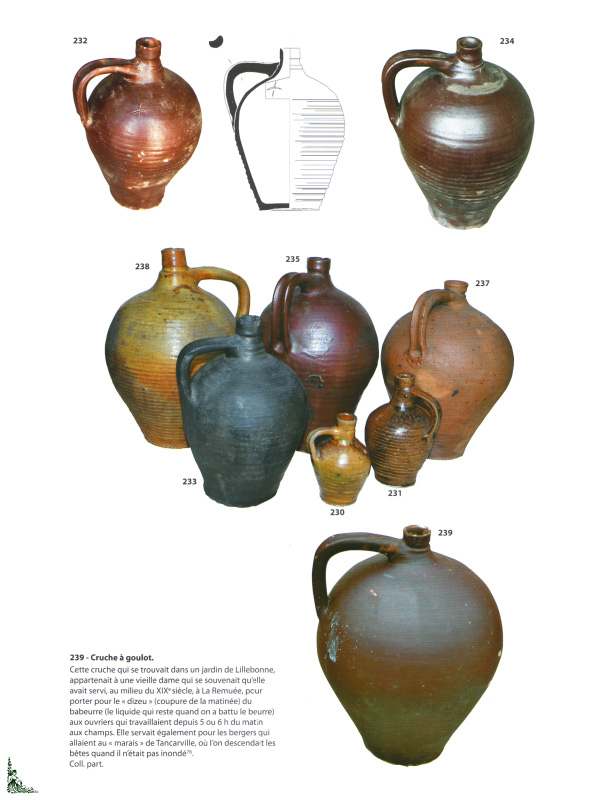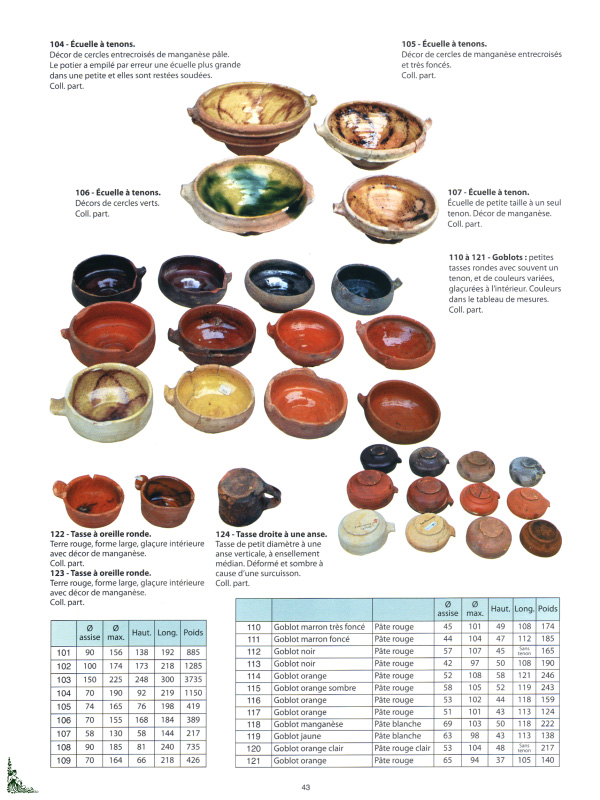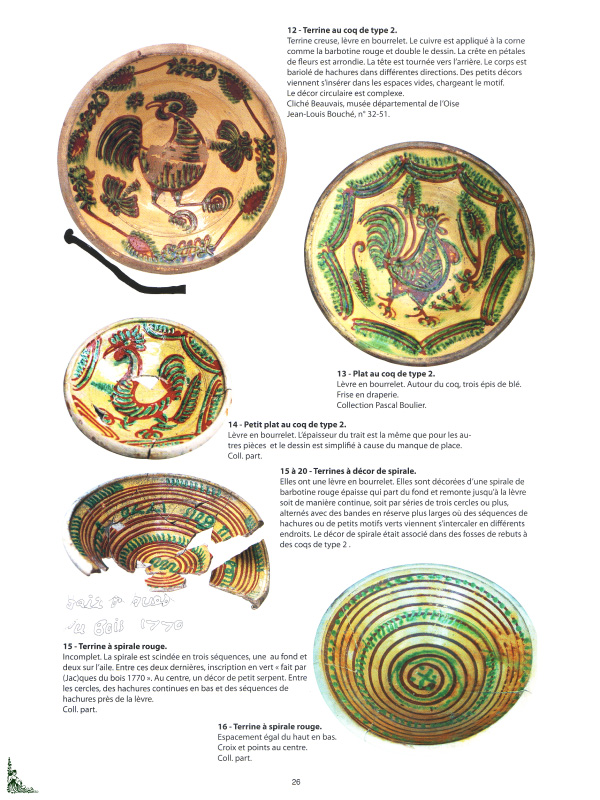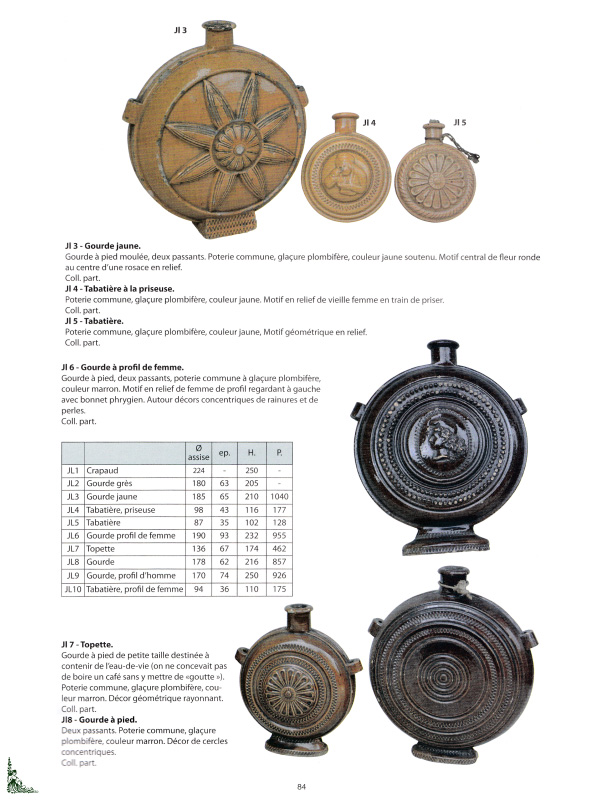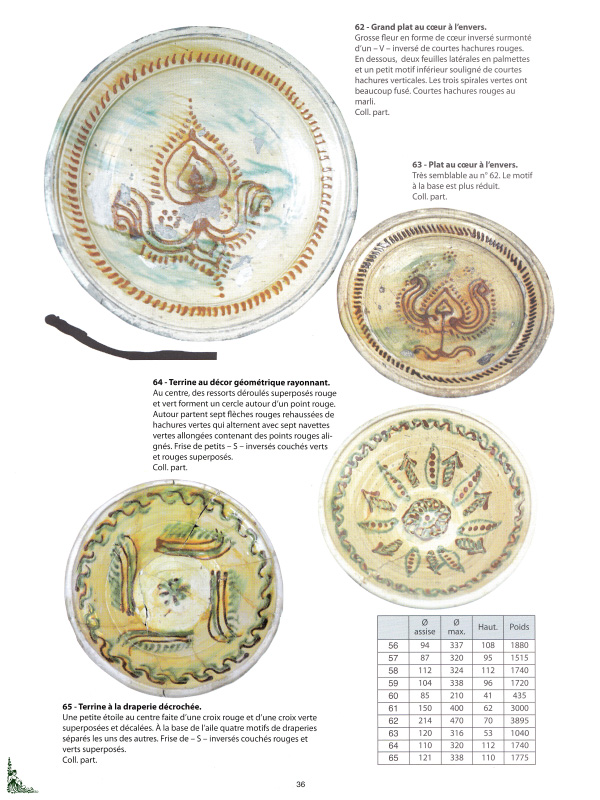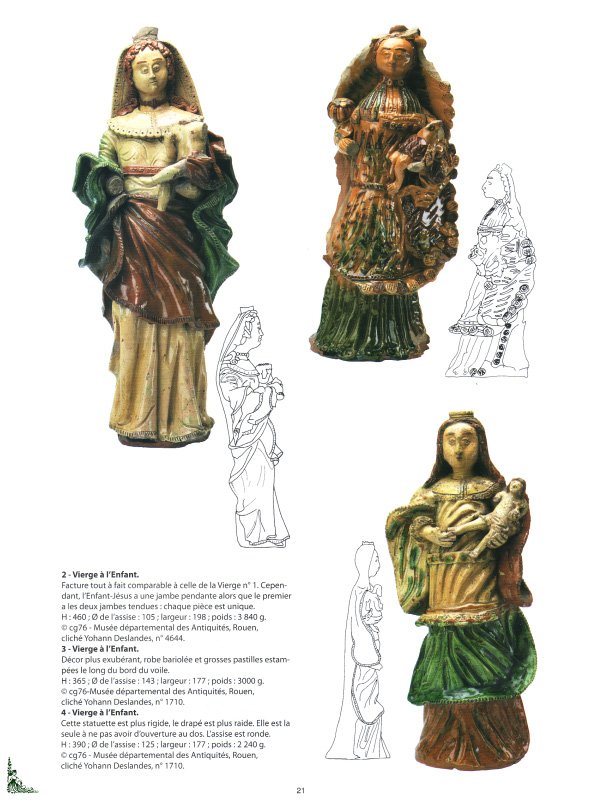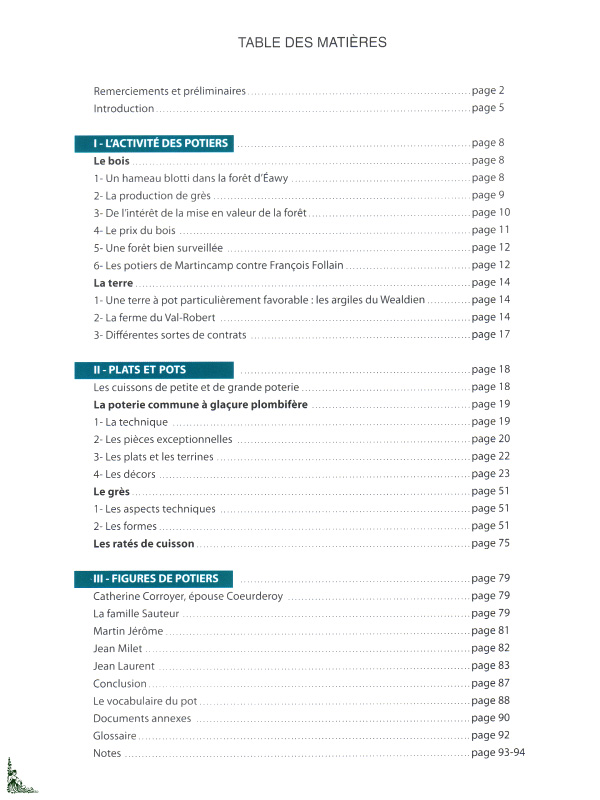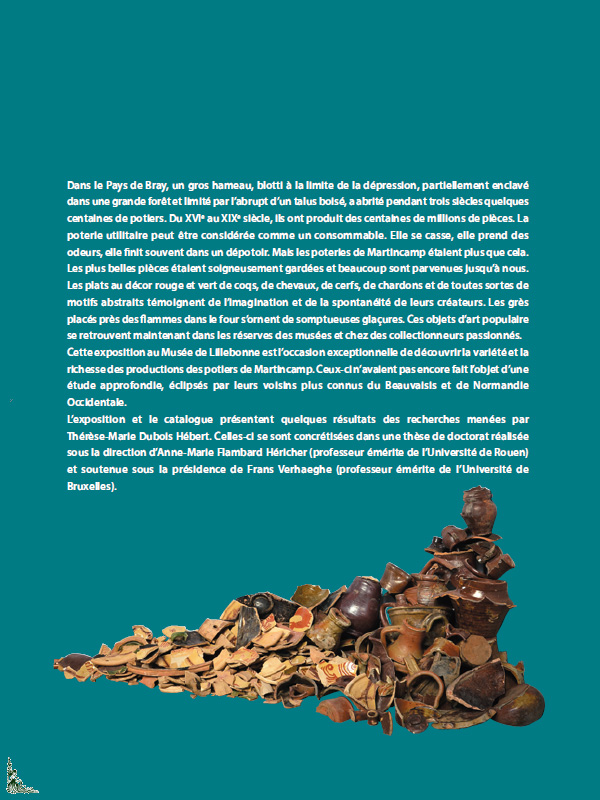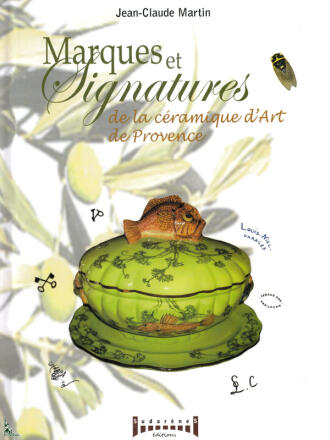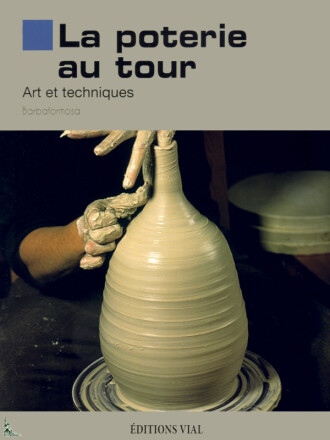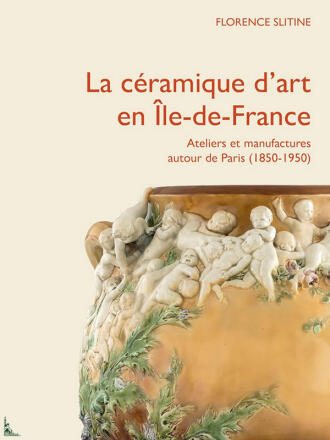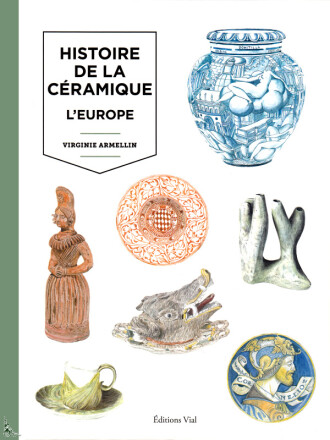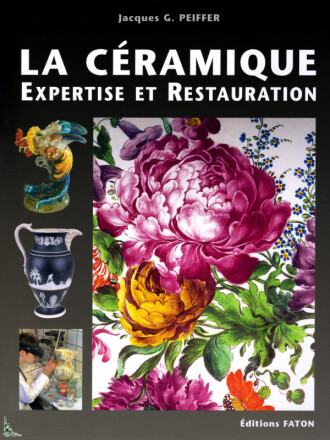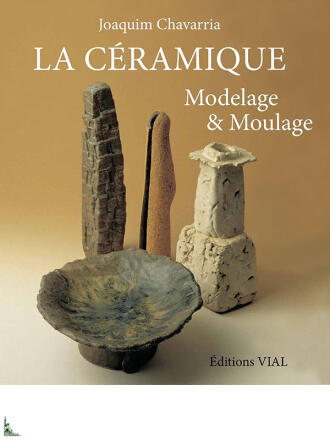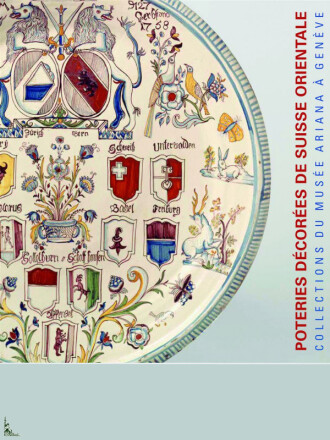Potters of Martincamp
- Vendido
Informações sobre o livro
| Autor : | Thérèse-Marie Hébert |
| Editor : | Thérèse-Marie Hébert (2012) |
| Encadernação : | Softcover (96 full color pages) 8 inches x 12 inches |
| Língua : | French |
| ISBN : | 978-2-7466-4791-6 |
| EAN : | 9782746647916 |
Descrição
Potters of Martincamp, by T.M. Hébert, 8 inches x 12 inches ( 21 cm x 30 cm ), softcover book with 96 full color pages
This softcover book with 96 full color pages with more than 400 color illustrations of pottery of Martincamp retraces the history of the potters who worked in the area.
From the 16th century to the 19th century, hundreds of potters have produced the common pottery, decorated by decorated with horn, with motifs and colors, sandstone, brilliant glaze flame or covered with a slip.
It was a popular and utilitarian pottery, heavy, quickly turned quickly decorated. During four centuries, more than one hundred million dishes, pots and jugs were produced. Forgotten after the death of the last potter, Jean Laurent in 1910, this production center was the largest yet in Seine-Maritime.
This book presents the finest pieces in color photos, sometimes with profiles drawn. It also provides historical information on the conditions of production, wood, earth, marketing and the daily lives of young and old potters.
Contents:
- Introduction
- Wood
- Earth
- Common pottery with lead glaze
- Sandstone
- cooking failures
- Conclusion
- The vocabulary of pot
- Glossary
The French texts are written by Thérèse-Marie Hébert.
 Description françaiseunfold_more
Description françaiseunfold_more
Les potiers de Martincamp
Détails du livre
| Auteur : | Thérèse-Marie Hébert |
| Éditeur : | Thérèse-Marie Hébert (2012) |
| Reliure : | Broché (96 pages couleurs) 21 cm x 30 cm ( 8 inches x 12 inches ) |
| Langue(s) : | Français |
| ISBN : | 978-2-7466-4791-6 |
| EAN : | 9782746647916 |
Description
Les potiers de Martincamp, de T.M. Hébert, 21 cm x 30 cm, broché avec 96 pages couleurs
Cet ouvrage de 96 pages couleurs avec plus de 400 illustrations présente les potiers de Martincamp.
Du XVIe au XIXe siècle, des centaines de potiers y ont fabriqué de la poterie commune, décorée à la corne de motifs aux couleurs vives et du grès, brillamment glaçuré à la flamme ou couvert d'un engobe.
C'était une poterie populaire et utilitaire, lourde, rapidement tournée, rapidement décorée. Durant quatre siècles, plus de cent millions de plats, de pots et de cruches ont été produits. Oublié après la mort du dernier potier, Jean Laurent, en 1910, ce centre de production était pourtant le plus important de Seine-Maritime.
Cet ouvrage reproduit les plus belles pièces en photos couleurs, avec parfois des profils dessinés. Il livre aussi des informations historiques sur les conditions de la production, le bois, la terre, la commercialisation et la vie quotidienne des petits et grands potiers.
Principaux chapitres de l'ouvrage :
- Introduction
- Le bois
- La terre
- La poterie commune à glaçure plombifère
- Le grès
- Les ratés de cuisson
- Conclusion
- Le vocabulaire du pot
- Glossaire
Les textes en Français sont de Thérèse-Marie Hébert.


